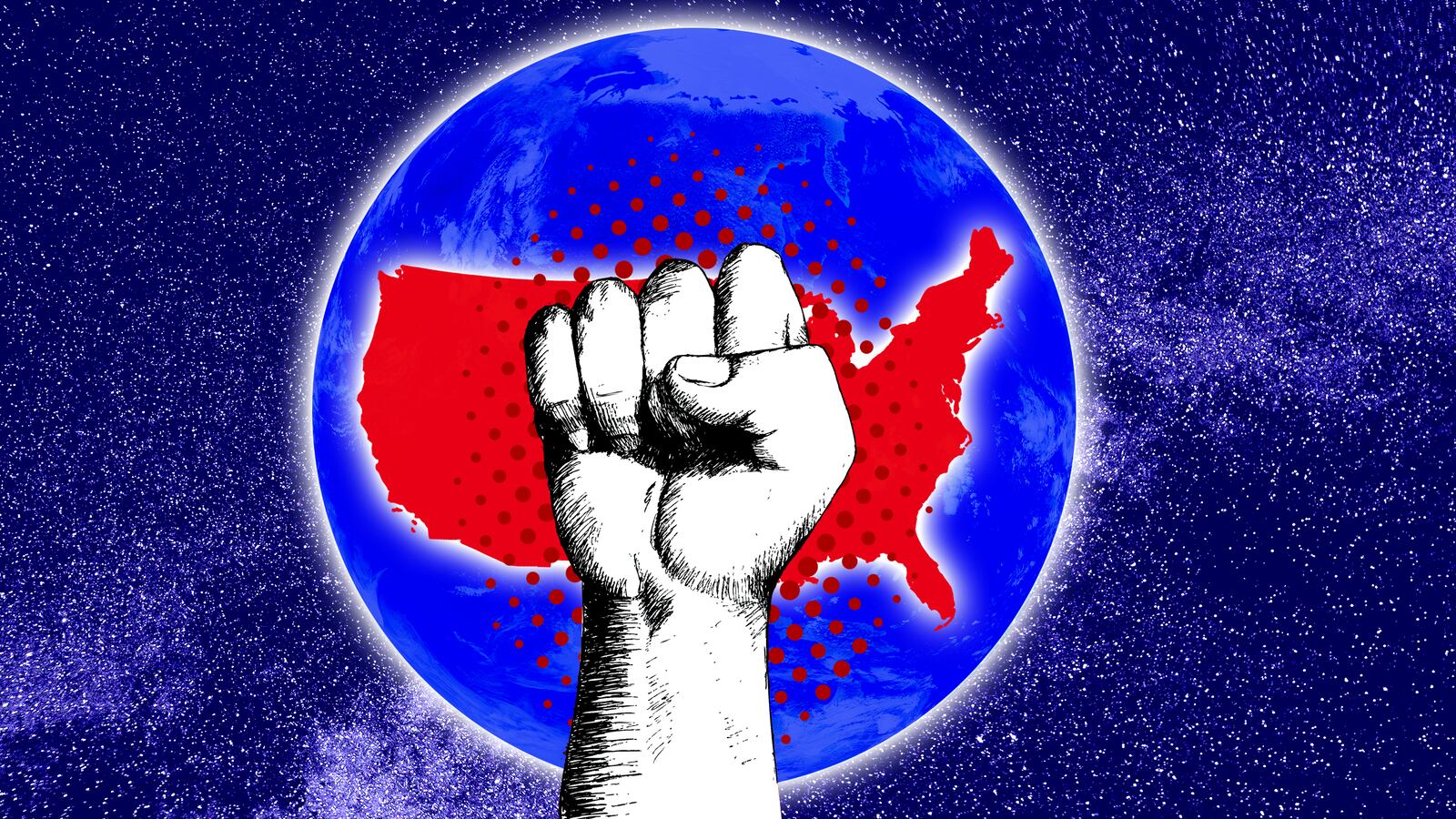In 1962, the late social critic Michael Harrington held up the mirror to America in his seething book The Other America. Harrington’s writing forced an idealistic nation to confront the reality of “The other America, the America of poverty (that) is hidden today in a way that it never was before.” His depiction gave them dignity and showed structures of poverty without pathologizing the poor, helping define a policy path forward. That book helped move a nation to do something; ushering in, for better or worse President Johnson’s war on poverty that this administration now absurdly claims is "largely over and a success."
In fact, today the poor are invisible again and when discussed, it is rarely as dignified people, but as caricatures and statistics. They have returned to their otherness.
Throughout this century, America has coasted on the global reputation we earned, to some extent, in the last century as the nation developed an enviable economic system to extend the middle class and, over time, to extend civil rights to groups we had deprived of them. We identified and solve problems and fulfilled promises of hope.
Now, though, we are being recognized for the new set of policies and priorities that began in earnest in 1980, with the election of Ronald Reagan and the ascendance of national austerity as a core value in a world with limited resources.
Reagan — distrustful of eastern elites, professional power brokers and intellectuals —believed that the federal government had over-reached and shackled private capital, thereby limiting economic growth. He believed that by cutting federal spending and reversing decades of economic centralization, going back to the New Deal, he could free up and unleash private capital to be creatively invested in the American economy and trickle down to the common man.
To achieve that, the bloated federal budget needed to be cut. Now, what part of the government to cut was never a true question given his Cold War belief in the need for a strong military and his Goldwaterish belief in individualism. So he aimed his knife at the welfare programs that provided basic support to individuals (or “queen,” as he once called one recipient) and that had expanded continuously since FDR, even under Republicans like Nixon. Reagan reversed that wave, so that even Democrat Bill Clinton embraced the politics of austerity — what some call neoliberalism — as when he vowed to “end welfare as we know it.”
The results have been mixed at best. Scholars today speak about a New Gilded Age, as federal policies and tax codes have allowed the accumulation of vast wealth in a few hands while dooming a generation to substantial poverty. The median income has been stagnant for 18 years, and has barely moved since 1980. Meantime, the wealth of upper-income families has kept rising, so that an upper-income family now has 75 times that of a low-income one — in 1989 is was only 28 times as much.
As we have walked down the road to austerity, a generation has come of age seeing consistent poverty and an ever-growing wealth gap as the normal state of things. They are hungry for a better way forward, as whole sections of our nation appear as if they are in developing countries, with high unemployment, a massive opioid epidemic and little hope.
The anger and sense of being left behind in these areas are a toxic mix of distrust and alienation that led many voters there to Trump. He may not be one of them, but he at least promises to blow up the system they resent, with reason.
Now it looks like we can finally see what might be the long term effects of austerity by looking at England. Writing recently in the New York Times, journalist Peter S. Goodman states that “As the global economy now negotiates a wrenching transition — with itinerant jobs replacing full-time positions and robots substituting for human labor — Britain’s experience provokes doubts about the durability of the traditional welfare model.” England's privatization and steep cuts to basic services have changed the lives of Britain's, as Goodman continues, “As Western-style capitalism confronts “profound questions about economic justice, vulnerable people appear to be growing more so.” The elite worries, but hasn’t been willing to confront the realities of years of austerity.
England shows us that the result of austerity seems to be an increasingly economically segregated existence, the appearance of two worlds, rich and poor, living within the same borders. In this way, we have exported the American way of life and are witnessing its results.
In many ways we are right back where we were in 1962, but sadly we don’t seem to have the same idealism or sense of hope. After generations dealing with poverty we are in a weaker position, having lost faith in the ability of institutions to solve anything. Have we hardened to our realities? Have we just given up on poverty as unsolvable? Maybe not.
In a recent Queens, New York Democratic Primary, 28 year old political newcomer Alexandria Ocasio-Cortez beat out the long serving and 4th ranked House Democracrat Joseph Crowley. Ocasio-Cortez is a proud member of the Democratic Socialists of America, an organization that Harrington founded and ran in his later life as the left-wing of the Democratic Party, to keep issues of justice alive within it.
After an all-but-meaningless general election in the overwhelmingly Democratic district, Ocasio-Cortez will be a fresh and powerful voice in the House. Maybe she and others can find a way to remember that change is always possible, and to articulate a path toward achieving it.






